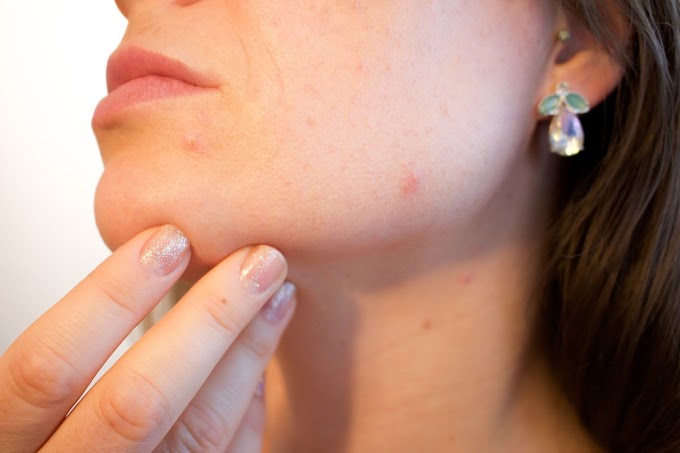In today's fast-paced world, mental health is gaining increasing attention. While therapy and medication play vital roles in addressing mental health concerns, an often overlooked factor is nutrition. Our diet profoundly influences our physical well-being, but it also has a significant impact on our mental health. This interactive blog aims to explore the fascinating link between nutrition and mental well-being, showcasing how making conscious food choices can have a positive effect on our minds.
Understanding the Gut-Brain Connection
The gut-brain connection is an intricate communication network between the digestive system and the brain. This bidirectional pathway highlights how our gut health can influence our mental state. A diet rich in fruits, vegetables, whole grains, and lean proteins nurtures a healthy gut microbiome, which supports the production of mood-regulating neurotransmitters like serotonin. By fostering a balanced gut environment, we can improve our overall mental well-being.Essential Nutrients for Mental Health
Several key nutrients play a crucial role in maintaining optimal mental health:Omega-3 Fatty Acids:
Found in fatty fish, flaxseeds, and walnuts, omega-3 fatty acids are vital for brain function. Studies suggest that these fatty acids may help reduce symptoms of depression and anxiety.
B Vitamins:
B vitamins, including B6, B12, and folate, are essential for neurotransmitter synthesis and regulation. Foods such as whole grains, leafy greens, and legumes are excellent sources of these nutrients.
Antioxidants:
Colorful fruits and vegetables contain powerful antioxidants that protect brain cells from oxidative stress. Berries, spinach, kale, and sweet potatoes are great choices.
Probiotics: Fermented foods like yogurt and kimchi provide beneficial bacteria that enhance gut health. A healthy gut microbiome has been linked to reduced symptoms of anxiety and depression.
Impact of Sugar and Processed Foods
While it's important to focus on nutrient-rich foods, it's equally crucial to limit the consumption of sugar and highly processed foods. Excessive sugar intake can lead to inflammation and disrupt the balance of gut bacteria, negatively affecting mental health. Processed foods often lack essential nutrients and are loaded with unhealthy fats, artificial additives, and preservatives. Choosing whole, unprocessed foods ensures a steady supply of nutrients for a healthy mind.Mental Health-Boosting Diet Suggestions
Building a mental health-boosting diet is easier than you might think. Here are some practical suggestions:Incorporate whole foods:
Include a wide variety of fresh fruits, vegetables, whole grains, lean proteins, and healthy fats in your meals.
Prioritize hydration:
Dehydration can impact cognitive function and mood. Aim to drink plenty of water throughout the day.
Mindful eating:
Practice mindful eating by savoring your meals, paying attention to hunger and fullness cues, and avoiding distractions.
Balanced meals:
Opt for balanced meals that combine complex carbohydrates, proteins, and healthy fats. This helps stabilize blood sugar levels and promotes sustained energy.
Limit caffeine and alcohol:
While moderate consumption may be fine for some individuals, excessive caffeine and alcohol intake can disrupt sleep patterns and exacerbate anxiety.
The evidence is clear:
better nutrition can significantly improve mental health. By nurturing a healthy gut microbiome, consuming essential nutrients, and avoiding harmful food choices, we can positively impact our mental well-being. Remember, small changes in your diet can yield substantial benefits for your mind. So, let's embark on a journey towards a healthier body and a happier mind through nourishment and mindful food choices. Let's make nutrition an integral part of our mental health care routine.
Interactive Tips for Incorporating Better Nutrition for Mental Health
Meal Planning:
Plan your meals in advance to ensure a well-balanced diet. Consider incorporating a variety of colorful fruits and vegetables, whole grains, lean proteins, and healthy fats into your meal plans. Experiment with new recipes and flavors to keep meals exciting and enjoyable.
Food Journaling:
Keep a food journal to track your eating habits and their impact on your mood and energy levels. This practice can help you identify patterns and make informed choices about the foods that make you feel your best.
Mindful Snacking:
Replace sugary and processed snacks with nutritious alternatives. Keep a selection of nuts, seeds, fresh fruits, and cut-up vegetables readily available for when hunger strikes. These healthy snacks provide essential nutrients and keep your energy levels stable throughout the day.
Socialize with Healthy Food:
When spending time with friends or family, choose social activities that revolve around healthier food options. Plan a picnic with fresh salads, grilled lean proteins, and colorful fruit platters. This way, you can enjoy good company while nourishing your body and mind.
Cooking and Meal Prep:
Engage in cooking as a form of self-care. Experiment with new recipes and involve family or friends in the cooking process. By preparing your meals, you have control over the ingredients and can ensure that they are packed with nutrients and tailored to your preferences.
Seek Professional Advice:
Consult with a registered dietitian or nutritionist who specializes in mental health. They can provide personalized guidance and recommendations based on your specific needs and goals. Their expertise will help you make informed decisions about your diet and mental well-being.
Stay Hydrated:
Proper hydration is essential for optimal brain function. Make it a habit to drink water throughout the day. If you find plain water boring, infuse it with slices of citrus fruits, berries, or herbs for added flavor.
Practice Moderation:
Remember that balance is key. Allow yourself occasional treats and indulge in your favorite foods in moderation. Restrictive diets can be counterproductive and negatively impact mental health. Focus on overall dietary patterns rather than fixating on individual foods.
Embracing a Nutrient-Rich Lifestyle
By recognizing the profound connection between nutrition and mental health, we have the power to improve our well-being from within. Incorporating better nutrition into our daily lives can positively influence our mental health, boost our mood, and enhance our overall quality of life. Let's embrace a nutrient-rich lifestyle, one mindful bite at a time.Conclusion
As we conclude our exploration of the incredible link between nutrition and mental health, we are reminded that what we eat directly impacts how we feel. By making conscious food choices, prioritizing essential nutrients, and maintaining a healthy gut, we can nourish our minds and cultivate a positive mental state. Let's harness the power of nutrition to foster mental well-being and embark on a journey toward a healthier, happier life.Remember, taking care of your mental health is a holistic process that involves multiple aspects of self-care, and nutrition is undoubtedly a vital piece of the puzzle.





0 Comments